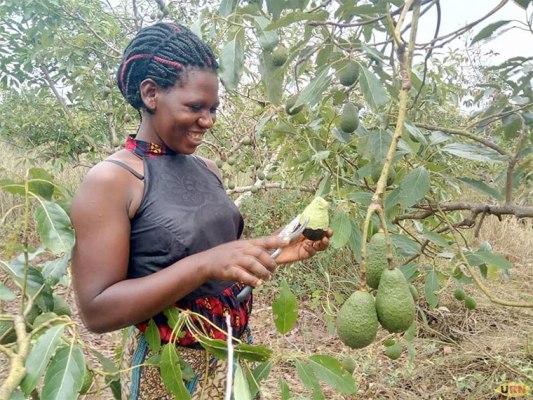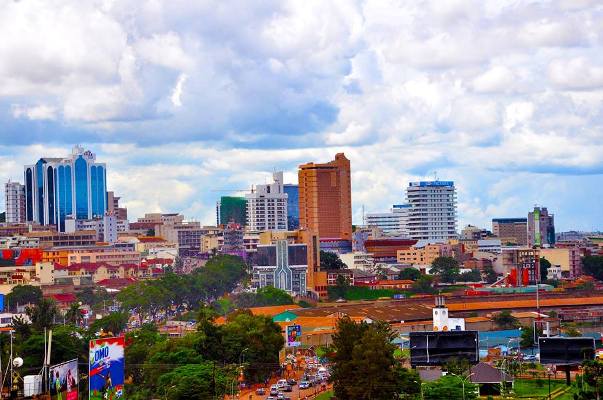Having trouble to decide which fruit to plant to generate income? Avocado could be a good bet. It can go on a toast, with pizza, morning katogo and make good juice.
The growing demand for fruits both domestically and internationally has forced several farmers to forego other crops like maize to concentrate on avocado. The demand for the fruit has seen tremendous growth expanding by 88.2 per cent in 2016 alone, according to Tridge, a platform that tracks global trade in different goods.
In the last three years, fruit exports grew by 315 per cent and expanded by 1005.6 per cent in the last five years, Tridge said. In 2016 Uganda earned $1.91 million (about Shs 7.2 billion), said Tridge. This figure could well be over $5 million (about Shs 18.7 billion) today, according to one dealer.
Ugandan avocado is exported dry or fresh. Uganda’s top export markets include Qatar, Canada, Belgium, Norway, Sweden, Spain and Egypt among other countries. Matasia Kwesiga, a Mbarara-based dealer who supplies exporters said he has been encouraging farmers to grow the fruit given the available market. Kwesiga also runs a nursery bed in Mbarara and Ibanda district.
“I am encouraging production of avocado because there is demand,” he said. Elite eateries like Cafe Javas trade avocado as a premium. For instance, asking an avocado slice costs more Shs 4,000 on top of the cost of the plate of food.
“The commercial supply (in Uganda) is very minimal. We always find a market for the farmers who produce avocado in Uganda,” said Adam Lavine, an advisor of Afriport International, an exporter of fresh fruits from Uganda, among which is avocado.
Another company heavily engaged in the dealerships of the fruit is KK Fresh Foods Uganda. Afriport International has noted on its website: “If you have a farm with over 200 avocado trees, we would be interested in talking with you.”
In 2016, traders imported the fruit for re-export because of the unreliable domestic supply. The crop’s imports grew by 200 per cent to 406 tonnes in 2016, reports Tridge. For Lavine, the country needs greater advocacy for the fruit to be grown in mass.
“We have great avocado. While it could be sold locally, I would encourage farmers to plant mixed – the Hass type and [one of their preferences],” he said.
“If we don’t invest in the Hass avocado type, we won’t be able to compete with Tanzania and Kenya.”
Hass avocado is a type that is more easily exportable because of the western market preference to the type, Lavine said. With a dark green-coloured, bumpy skin, it is bought at a higher price than the ordinary ones.
According to Oxfarm Organic, a Kenyan firm dealing in the fruit, hass-avocado does not require much labour and time to maintain. In addition, demand for it is extremely high and “we just can’t satisfy the current local demand and in European countries.”
Kwesiga said: “Hass is on high demand yet not intensively grown at the moment.”
This type can be bought from nursery bed owners around the country. In the neighbour Kenya and Tanzania, there are government and donor-support initiatives that are seeing tens of farmers pivot from crops like coffee to avocado.
In 2016, Tanzania earned $9 million from avocado export while Kenya ranks as Africa’s largest and one of the world’s largest producers of avocado and it represents 17 per cent of the country’s horticultural exports.
“Kenya is spending millions to plant hass [avocado],” said Lavine.
Coupled with health benefits, the fruit’s demand can only soar. Dr Paul Kasenene, a nutritionist twitted this week: “Two of the biggest health challenges today are rising blood pressure levels and people becoming overweight. Avocado is rich in potassium that’s good for high blood pressure. It also has plenty of healthy fats that help with fighting cravings and supporting weight loss.”
In Uganda, smaller farmers are still facing a raft of challenges, which begs intervention of government to help them. Some of the challenges include the fact small farmers sell to middlemen who pay very little.
A sack of avocado, Kwesiga said, is purchased from a farmer at between Shs 40,000 and Shs 50,000. Kwesiga sells it to the exporting company at Shs 80,000. For some farmers, it is even worse. Jenifer Birungi, a farmer based in Ibanda, said she is usually paid Shs 10,000 a sack. A sack usually contains 200 to 200 pieces.
For the traders, the bulkiness of the crop, unreliable season, harvesting and post-harvest losses are some of the drawbacks. The other challenge is poor species of trees that don’t yield quality crops, Kwesiga said. But numbers indicate avocado could a good bet – even in retirement.
Credit: URN





